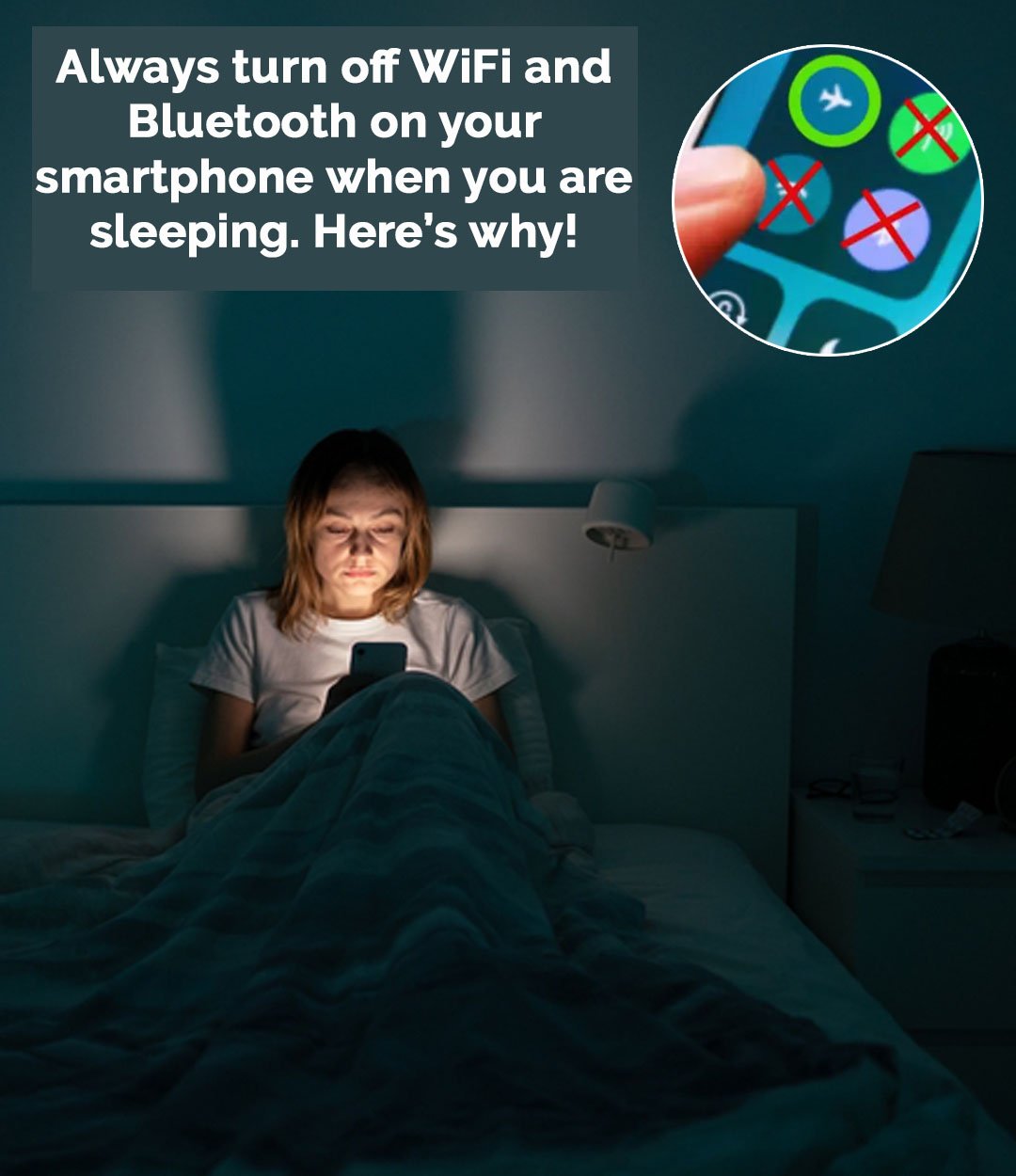In today’s world, our smartphones have become more than just communication tools—they’re our alarm clocks, entertainment hubs, and even bedtime companions. But when it’s time to sleep, experts recommend shutting off WiFi and Bluetooth. This simple habit can significantly improve your sleep quality, boost your phone’s security, and even reduce potential health risks. Let’s explore why turning off these features before bed is a small yet impactful change you should consider making every night.

First and foremost, disabling WiFi and Bluetooth helps conserve your phone’s battery life. Smartphones are notorious for being energy vampires, even when they’re not actively in use. With WiFi and Bluetooth turned on, your device constantly searches for available connections—whether it’s scanning for networks, speakers, or smartwatches. This background activity quietly drains your phone’s battery while you sleep. By switching these features off, your phone can stay in a more efficient idle mode, allowing you to wake up with significantly more battery life. It’s a simple trick that reduces the need for frequent charging and extends the overall lifespan of your battery.
Beyond battery conservation, turning off WiFi and Bluetooth can significantly enhance your sleep quality. Notifications, updates, and background syncing can cause subtle disruptions throughout the night. Even if you’re not consciously aware of those tiny vibrations or blinking lights, your brain registers them. This can prevent you from achieving the deep, uninterrupted sleep cycles your body needs for proper rest and recovery. By disabling these features, you’re essentially reducing nighttime distractions. Pair this habit with enabling “Do Not Disturb” mode, and you’ll create an ideal sleeping environment free from digital interruptions.
Another crucial reason to consider disabling WiFi and Bluetooth at night is the potential exposure to electromagnetic fields (EMFs). While scientific research is still ongoing, some studies suggest that prolonged exposure to EMFs could interfere with the body’s natural processes, including sleep patterns. Tech experts at Tech Wellness explain that electromagnetic fields can disrupt electrical communication within the body, affecting brainwaves and neuron activity. Though regulatory agencies like the FDA state that there’s no definitive evidence linking radio frequency energy from cell phones to health problems, the cautious approach is to minimize exposure whenever possible. By turning off WiFi and Bluetooth, you’re reducing your proximity to these signals, creating a more serene and health-conscious sleeping space.
Security and privacy are also key factors to consider. When your phone’s WiFi and Bluetooth are active, it’s constantly seeking and communicating with nearby networks and devices. This openness creates vulnerabilities that can be exploited by hackers or malicious software. Cybercriminals often look for open networks and unattended devices, and your sleeping phone could be an easy target. By switching off WiFi and Bluetooth, you’re essentially locking the digital doors to your device. It’s a preventative measure that keeps your personal data secure, even when you’re fast asleep and unable to monitor your phone.
In addition to the technical benefits, turning off these features can also serve as a much-needed digital detox. Our constant connection to the online world often prevents us from fully disconnecting and winding down at night. The simple act of switching off WiFi and Bluetooth can act as a mental signal, reminding you to put your phone away and focus on relaxing. It encourages you to create a bedtime routine free from the endless scrolling of social media or late-night email checks. Over time, this habit can foster healthier boundaries between you and your devices, improving your overall mental well-being.
If you’re looking for an extra layer of nighttime phone etiquette, consider enabling “Do Not Disturb” mode in addition to disabling WiFi and Bluetooth. This feature ensures that only essential calls or notifications come through, allowing you to sleep without unnecessary interruptions. Combined with the physical act of shutting off connectivity features, it creates a foolproof system for better rest and digital security.
At first glance, turning off WiFi and Bluetooth might seem like a minor adjustment, but its benefits are far-reaching. From preserving your phone’s battery and enhancing your sleep quality to reducing potential EMF exposure and boosting cybersecurity, this tiny habit packs a powerful punch. Plus, it promotes a healthier relationship with technology by encouraging intentional disconnection.
So, the next time you’re about to hit the pillow, take a moment to switch off WiFi and Bluetooth. It’s a quick, effortless habit that pays off in multiple ways. Try it tonight and notice the difference in how you feel when you wake up—your phone will have more battery, your mind will feel more rested, and your personal data will remain secure. Sometimes, it’s the smallest habits that make the biggest difference.





